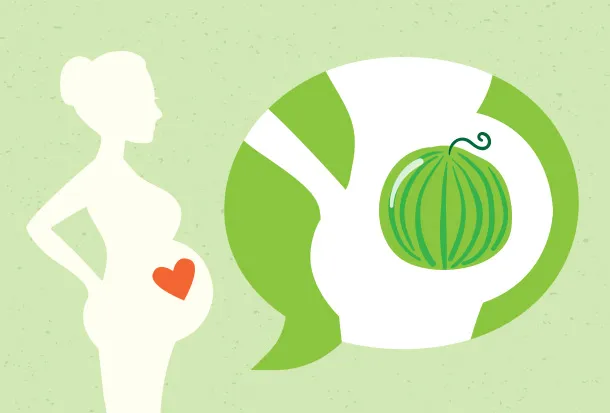After 38 weeks, the pregnancy is considered full term. The amount of water in the foetus decreases and the abdomen stops growing. The baby has less and less space, so mothers may complain of discomfort due to pressure on the bladder.
The baby in the belly is not as energetic as it used to be, but its presence can cause a number of discomforts that can be annoying. The mother may be tired, but it is a sign that she should start counting down the days until the birth.
38 weeks pregnant – complaints
An expectant mother may experience a range of symptoms related to the baby putting pressure on certain organs, especially the bladder. Frequent running to the toilet is completely normal.
The pregnancy belly becomes lower, although this is not the norm (especially for women who have given birth for the second time). It can even happen a few days before birth. The reason for the lowering is the baby’s descent into the birth canal. The abdomen may also be tense. In the 38th week of pregnancy, a hard belly is nothing more than a symptom of an impending birth. This may be accompanied by pain. In the 38th week of pregnancy, period abdominal pain is due to pressure on a nerve caused by the insertion of the baby’s head into the birth canal.
At this late stage, women may have a wobbly and somewhat erratic gait. This is common and not unusual. There is also swelling, which is inevitable at this time. This is due to the increased weight and circulatory problems, but is not a danger. You will also notice a marked increase in the volume of your breasts. In the last weeks of pregnancy, they fill with milk and become fuller.
Week 38 of pregnancy – the development of the baby
In the 38th week of pregnancy, weak movements of the baby are not yet a cause for concern. The reason for this is the small amount of space in the womb. The baby is already a big newborn, so it cannot kick like it used to. The movements are more like stretches. It is worrying if in the 38th week of pregnancy the baby’s movements disappear or are not present at all. The expectant mother should visit the hospital and inform the doctor of her concerns. An electrocardiogram should dispel these doubts.
The baby now weighs about 3100 g. For small women in the 38th week of pregnancy, the baby’s weight is slightly less – about 2500 g. The baby measures up to 50 cm. At birth it can function independently outside the mother’s body.
Week 38 – Signs of labour
In the 38th week of pregnancy, labour symptoms are preceded by Braxton-Hicks contractions. These are called pre-labour contractions. They differ from contractions in their frequency and duration. They start in the middle of the abdomen and last for a short time. They are caused by the uterus preparing for birth. They are similar to a mild menstrual pain.
The 38th week of pregnancy may end with the mucus plug going out, which does not necessarily mean that the woman is already in labour. The mucus may break up a few days before the birth. In the 38th week, labour might start, which cannot be confused with preterm labour.










